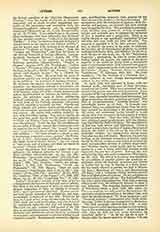

Lusignan, JEAN-BAPTISTE-ALPHONSE, a French-Canadian writer, b. at St-Denis on the Richelieu, P. Q., September 27, 1843; d. January 5, 1893; son of Jean-Baptiste Lusignan, a merchant, and Onesime Masse. He was educated at St-Hyacinthe College, and studied theology there and at Montreal Seminary. Judging after three years that he was not called to the Church, he studied law at St-Hyacinthe and at Laval University, Quebec, and practiced in the former city for a few years. He contributed to several newspapers and was chief editor (1865-68) of “Le Pays”, the principal organ of the French-Canadian Liberal party at the time, a paper the attitude of which in politico-religious questions, notably the so-called undue influence of the clergy in politics, was frequently at variance with the views of ecclesiastical authority. Lusignan published (1872), as a continuation of a similar work by Judge Ramsay, a “Digest of Reported cases”; “Coups d’ceil et coups de plume” (1884). He was an ardent patriot and a thorough student of the French tongue, ever zealous by his criticism and by his example to preserve its purity. All his Canadian contemporaries looked upon him as a master of the language, his lexicographical erudition being unrivalled in Canada. All the delicacies and intricacies of French grammar and phraseology were familiar to him. His style, remarkably deft and fluent would have given him a foremost rank had he been placed in a more favorable field. He was elected (1885) a member of the Royal Society of Canada.
LIONEL LINDSAY

